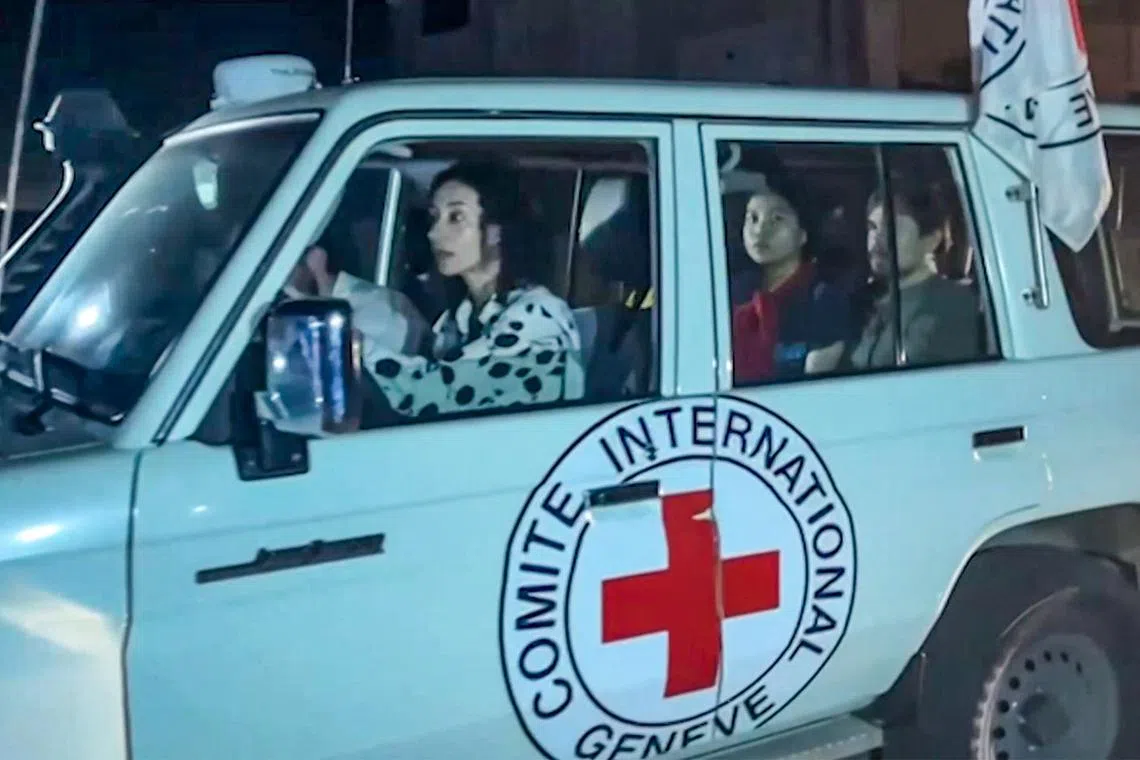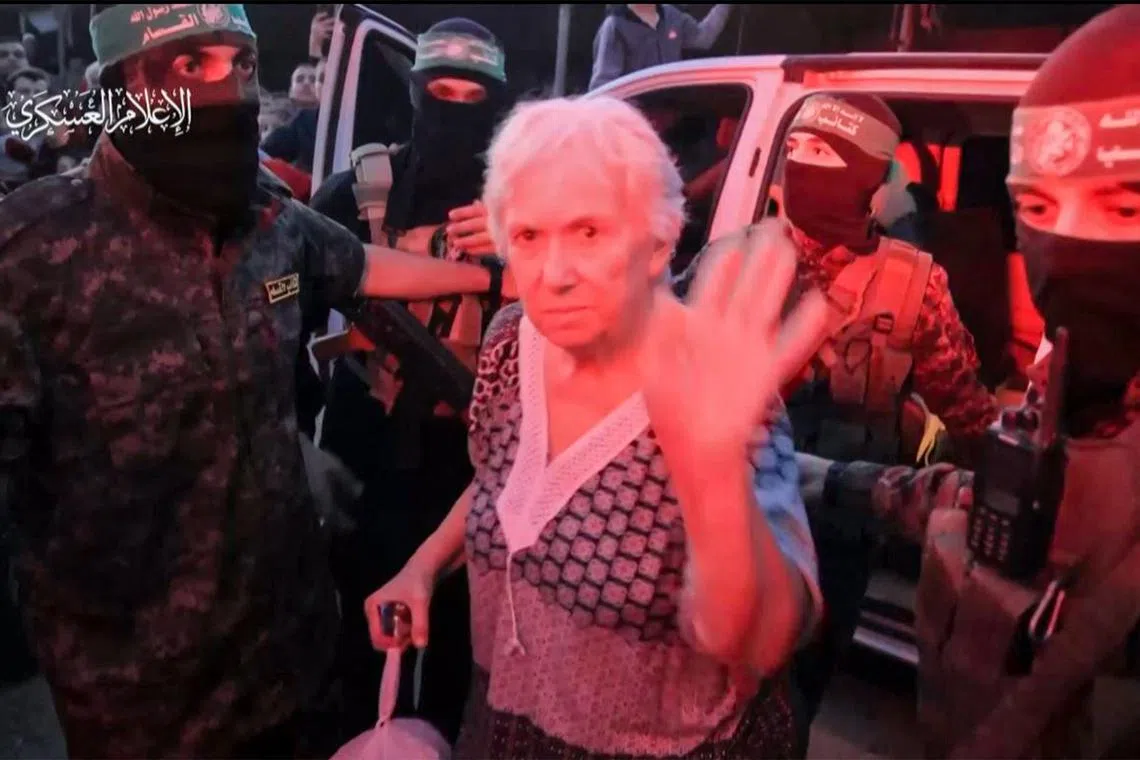Temporary Gaza truce holds for a second day, allowing more hostages, prisoners to be freed
Sign up now: Get ST's newsletters delivered to your inbox
GAZA/JERUSALEM - The truce between Israel and Hamas held for a second day on Nov 25, with no major sparks of violence reported, allowing both sides in the conflict to release more hostages and prisoners.
Israel and Hamas have said hostilities would resume as soon as the truce ends, though United States President Joe Biden said there was a real chance of extending the truce.
He declined to speculate on how long the Israel-Hamas war would last, but stressed that the pause was a critical opportunity to get humanitarian aid into Gaza.
Asked at a news conference what his expectations were, he said Israel’s goal of eliminating Hamas was legitimate but difficult.
Israel has vowed to destroy Hamas, which staged a raid of border towns took about 240 hostages
Since then, Israel has rained bombs on Gaza, killing more than 14,000 people, roughly 40 per cent of them children, according to the Palestinian health authorities.
Hundreds of thousands of Gaza’s 2.3 million people
With the truce holding, 13 Israeli hostages being held in Gaza, as well as 39 Palestinian prisoners serving time in Israeli jails, were set to be freed on Nov 25, Israeli military spokesman Olivier Rafowicz told France’s BFMTV.
Egyptian security sources said earlier in the day that they received a list from Hamas of 14 hostages to be released.
On Nov 24, 13 Israelis – including four children and five elderly women – were released
The released hostages were transferred from Gaza and handed to the Egyptian authorities at the Rafah border crossing, along with eight staff members of the International Committee of the Red Cross, in a four-car convoy.
They were then taken to Israel for medical checks and to reunite with their relatives.
In return, 39 Palestinian women and children – some convicted or detained on suspicion of weapon charges and violent offences – were released from Israeli jails.
Aid has also begun to pour into Gaza since the start of the ceasefire. Four tankers of fuel and another four containing cooking gas entered the southern Gaza Strip via the Rafah crossing early on Nov 25.
The Israeli authorities said these were meant for essential humanitarian infrastructure in Gaza, such as hospitals.
The Palestine Red Crescent Society said 196 lorries of humanitarian aid, including food, water and medical supplies, were delivered through Rafah on Nov 24, the biggest aid convoy into Gaza since Hamas' assault on Israel and Israeli bombardment of the territory in retaliation.
About 1,759 lorries have entered the enclave since Oct 21, it said.
Aid groups, meanwhile, have used the truce to evacuate patients and health workers from some northern hospitals that have all but collapsed.
The World Health Organisation helped transfer 22 patients from Al-Ahli hospital to the south on Nov 24, its chief Tedros Adhanom Ghebreyesus said on the social media platform X, formerly Twitter.
“To meet all the health needs in Gaza, much more support is needed and, above all, sustained ceasefire,” he said.
Mixed emotions in Israel
In Israel, the families of the released hostages expressed mixed emotions,
“I’m excited for the families who today are going to hug their loved ones,” Ms Shelly Shem Tov, the mother of Mr Omer Shem Tov, 21, said in an interview with Israel’s Channel 12.

The released hostages were transferred out of Gaza and handed over to Egyptian authorities at the Rafah border crossing accompanied by eight staff members of the International Committee of the Red Cross (ICRC) in a four-car convoy.
PHOTO: AFP
He was not among those released on Nov 24.
“I am jealous, and I am sad, mostly sad, that Omer is still not coming home.”
Ms Roni Haviv, a relative of Ohad Munder, said she was looking forward to giving the nine-year-old his favourite toy.
“I’m waiting to see Ohad and can’t wait to give him his Rubik’s cube, which I know he really loved and he probably missed it so much and that’s the first thing he takes everywhere he goes,” she said.

A hostage waving next to members of the Al-Qassam Brigades before being handed over to officials from the International Committee of the Red Cross in Gaza on Nov 24 ahead of her transfer to Israel.
PHOTO: AFP
In Palestinian homes, the joy of being reunited with loved ones was tinged with bitterness.
“There is no real joy, even this little joy we feel as we wait,” said Ms Sawsan Bkeer, the mother of 24-year-old Palestinian prisoner Marah Bkeer, jailed for eight years on knife and assault charges in 2015.
Israeli police were seen raiding her Jerusalem home before her daughter was released.
“We are still afraid to feel happy and at the same time, we do not have it in us to be happy due to what is happening in Gaza,” she said. REUTERS


